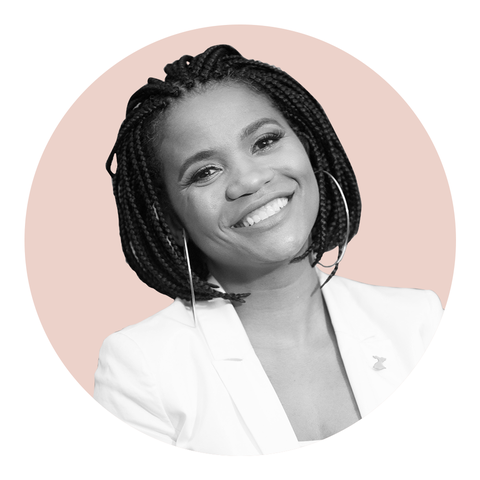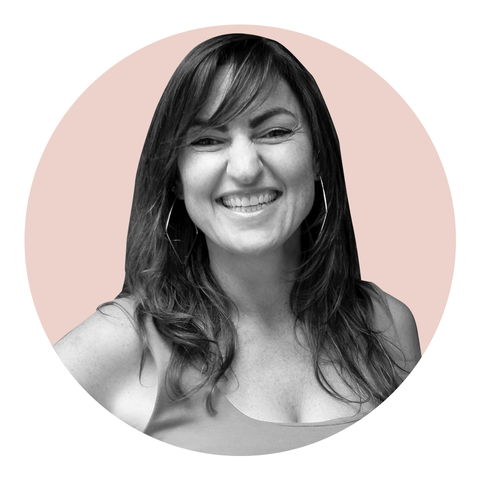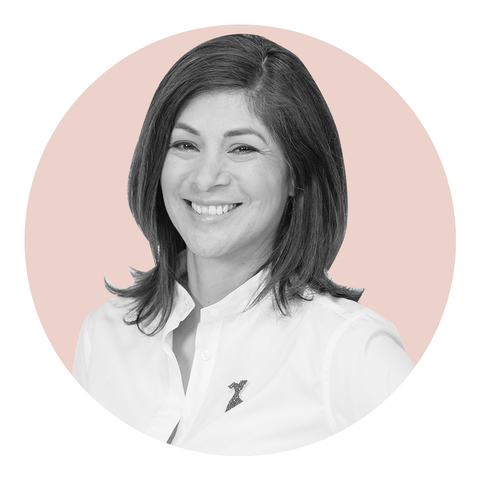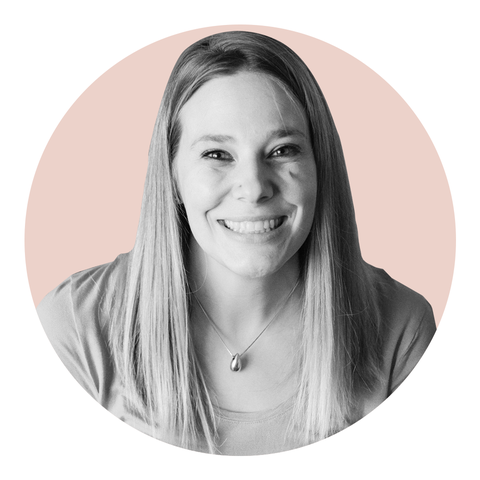
You’d totally know if you were having a heart attack, right? You’d clutch your left arm in pain, immediately fall down to the floor, and head to the hospital immediately.
Eh, not so much. Heart attacks look way different in women. While, yes, many women experience chest and arm pain, it’s entirely possible to have a heart attack without these symptoms, says Jennifer Haythe, MD, a cardiologist and co-director of the Women’s Center for Cardiovascular Health at Columbia University.
Other sneaky heart attack symptoms you need to know include jaw pain, shortness of breath, extreme fatigue, dizziness, back pain, nausea, hot flashes, indigestion, and even something that feels like an anxiety attack.
Heart disease is the number one killer in the U.S. for women (men, too!) and is responsible for one in three female deaths, according to the American Heart Association. But “too many women don’t realize that heart disease is the greatest risk to their health,” says Dr. Haythe. “Women need to be even more educated because they’re more likely to have atypical symptoms.”
If that weren’t tricky enough, each individual may experience different symptoms. Here, five heart attack survivors reveal exactly what their heart attack felt like.
“I felt like I had a large pill stuck in my throat”

Courtesy of Tara Robinson
“I actually had three heart attacks in three days. I experienced my first heart attack on April 10th, 2014, a second on April 11th, and a third on the 12th, just hours after being released from the hospital. The last one was so severe I was considered dead for a few minutes and it’s miracle the doctors were able to bring me back.
“Looking back, I realized I’d been having heart symptoms, like numbness in my left arm and stiffness in my neck, since November of 2013. During my actual heart attacks, my chest felt as if something was stuck, like I swallowed a large pill and it wouldn’t pass. I also experienced nausea, hot flashes, sweating, clamminess, and extreme fatigue. But if I had to sum it up, I would say my body felt like a lot of circuits misfiring at one time.
“After surgery to put a stent in, my cardiologist told me I needed to rethink my entire lifestyle, mentally and physically. I took his advice and today I’m happy to say that I exercise five days a week with a combination of yoga, cardio, and weight lifting. I admit that I have a slight advantage over most as my husband is a fitness coach; he helps me stay the course! We all need support and encouragement for this journey.”
–Tara Robinson, 45, volunteer for the American Heart Association’s Go Red For Women “Real Women” campaign
“I felt like I had awful heartburn.”

Courtesy of Shannon Schleicher
“I had just finished teaching three high-intensity classes, and I felt a pain in my chest, but I brushed it off as heartburn. Then, as I was walking up the stairs at my gym for a meeting, I suddenly felt extremely fatigued—so much so that I didn’t think I’d be able to make it the rest of the way.
“Seconds later, I felt hot and sweat started rolling off of me, like I had just gotten out of a sauna. I also suddenly wasn’t able to catch my breath, I felt nauseous, I had cramping in my hands, and my chest pain was getting worse and worse.
“I kept saying I was fine, but my coworker knew better, so she called 911. Paramedics did an EKG and immediately threw me in the ambulance and rushed me to the hospital.
“Within an hour, I had an angiogram to remove a clot that had blocked my left anterior descending artery 100 percent. The second it was out, I felt immediate relief. My cardiologist’s best guess was that stress or exercise, or a combination of the two, caused a tear in my artery, which forced the blood to clot. I found out later that the majority of people with this same blockage die.
“I feel so fortunate to be able to lead my healthy lifestyle today, but it’s always in the back of my mind. Now I have regular checkups for my arteries and am careful not to overdo it with intense exercise. The experience has just made me so thankful for every day I have!”
–Shannon Schleicher, 39, a personal trainer and fitness coach for Life Time Athletic
“I felt like I was hiking Mount Everest—on flat ground.”

Courtesy of Mika Leah
“I was on what was supposed to be an easy hike with my friend, when all of a sudden I felt super breathless (we weren’t even out of sight of the parking lot yet), and I had pain shooting down my left arm.
“I sat down on a rock and told my friend I felt fine—the hike should’ve been easy, I had just completed a half marathon and was recently checked out by my doctor for mild chest pain—but he didn’t believe me and rushed me to the doctor.
“When I got there, the doctors found that the left main artery of my heart was 98 percent blocked and the blockage was very close to my heart—a condition referred to as “the widow maker” because it’s so often lethal. I was just 33 years old and in great shape, but it turns out I carry a gene that greatly increases my risk of heart disease. (My dad had his first heart attack at 32!)
“Since that fateful day, I had three surgeries and five stents put in. I also need to follow a strict vegan, low-cholesterol diet. But today I’m doing great and back to doing the activities I love, including starting my own fitness company.”
–Mika Leah, 41, founder of Goomi and volunteer for the American Heart Association’s Go Red For Women “Real Women” campaign
“I thought I had breast cancer.”

Courtesy of Lilly Rocha
“In early 2008 I started having some strange symptoms—my left shoulder hurt for no reason, I was having a hard time answering questions because my brain felt foggy, and I had what felt like electric shocks all down my left side. But none of them felt severe enough to get checked out, so I brushed them off for nine months.
“Then, almost overnight, the electric shocks intensified on my left torso and I started to have pain in my chest. Breast cancer was the first thing that popped into my mind, but before I could make an appointment to get it checked out, my health went downhill—fast.
“I woke up one morning feeling awful—super tired, my back hurt, and I was nauseous—but I went into work anyhow. Once there, I told my coworker how I felt, adding that my chest felt like it was getting crushed. He immediately said, ‘That sounds like a heart attack.’
“I thought he was crazy. I was only 37, I wasn’t overweight, I didn’t have clogged arteries, and I was very fit. Still, he insisted on taking me to the hospital. Once we were there, I had a full-blown heart attack in the waiting room of the ER.
“During the entire ordeal, I never thought “This is it, I’m having a heart attack.” I just felt miserable and knew something was terribly wrong. Looking back, I realize I overlooked one huge risk factor: my family history of heart disease. After I had my heart attack, I found out that nearly everyone on my mom’s side had early heart disease. My grandfather also had a heart attack at 37.
“The whole experience was terrifying and I still feel traumatized remembering it. But in a way, it was a really good wake up call. Now that I know my risks, I can be better prepared. I take heart medication and a baby aspirin every day, and I get tested regularly. I’m back to my favorite sport—rock climbing—but I make sure to tell everyone to ask their parents about their history of heart disease.”
–Lilly Rocha, 47, volunteer for the American Heart Association’s Go Red For Women “Real Women” campaign
“I thought I was just having a panic attack.”

Courtesy of Molly Schroeder
“I was just 21 years old and a senior in college when I had a heart attack. I was at my apartment with my roommates, getting ready to go to soccer practice when I started having what I thought was anxiety. My mother had just died six weeks earlier (of heart disease!), and I was still very much grieving her loss.
“Every time I took a breath, my chest would hurt when I exhaled. After a few minutes, the pain in my chest increased until it felt like someone was both squeezing and stabbing my heart. It wasn’t the worst pain in my life, but it was extremely uncomfortable. I felt faint and lightheaded. I was cold, but I was sweating and nauseous too.
“But the weirdest part was that my wrists felt numb—almost like my arms were asleep, but the feeling was focused around my wrists. It didn’t matter how I sat, laid, or stood, the pain and the weird feelings wouldn’t go away. That’s when I knew something was really wrong.
“I went to the hospital where doctors discovered a blood clot partially blocking one of my arteries, which had caused a heart attack. They were able to break up the clot with medication, so I didn’t need surgery.
“Today I’m doing great and I only have two restrictions: I am no longer allowed to participate in contact sports (like soccer) to prevent clot movement or formation from injury, and I’m supposed to keep my heart rate below 170 beats per minute as a precaution not to strain my heart.
“My mom was just 58 when she died and I still miss her every day. Her memory reminds me why heart health is so important, even in young, seemingly healthy women.”
–Molly Schroeder, 28, volunteer for the American Heart Association’s Go Red For Women “Real Women” campaign
Source: Read Full Article